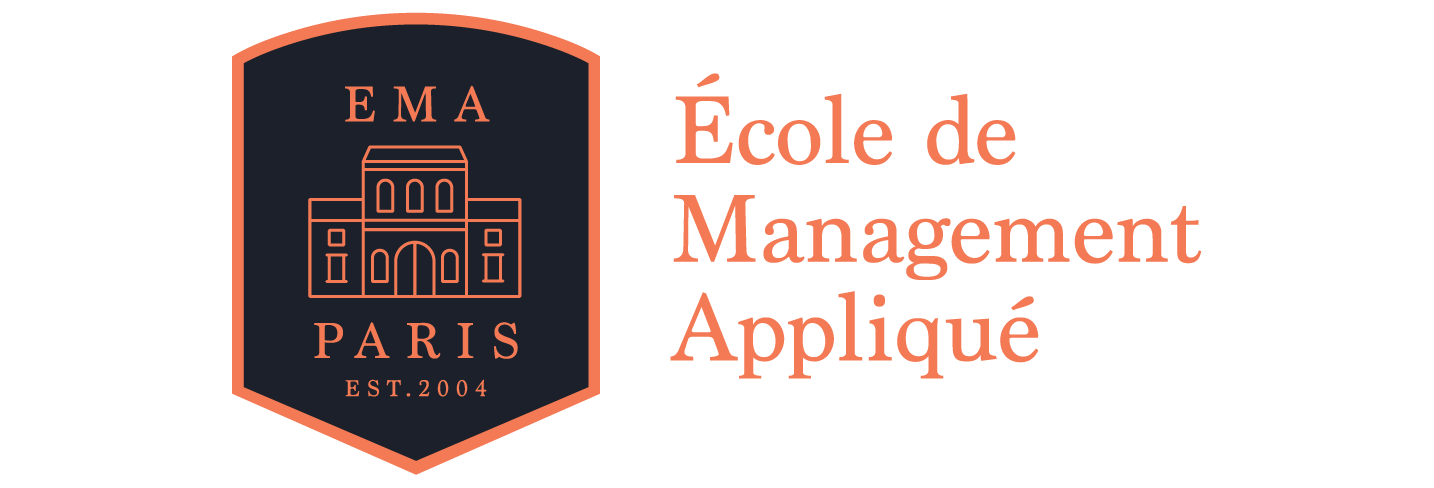Student living expenses in Paris range from €1,000 to €1,200 per month, covering rent, food, transportation and personal items. Lifestyle and accommodation choices can influence costs.
Studying in Paris is a dream for many students, but the cost of living in the city can be a big challenge. From high rent costs and daily meals to transportation and social activities, the expenses can quickly add up. For international students especially, managing finances wisely is key to enjoying all that Paris has to offer.
This blog shares the top 7 money management tips for students moving to Paris for higher studies. But before we dive into these practical tips, let us first understand what contributes to the common cost of living in Paris.

Understanding the student cost of living in Paris
Known as the city of light, Paris is the largest city in France. With a population estimated to be around 2.1 million people, the city is home to international community of students, professionals and entrepreneurs.
Understanding the student cost of living in Paris is essential to plan your finances in advance and make the most of what the city has to offer. When evaluating these costs, it is important to consider the major expenses students are likely to incur, including accommodation, food, travel and entertainment.
| Activities | Average spends |
| Housing | €550-€700 monthly* |
| Meals | €12-€15 a meal* |
| Electricity and internet charges | €200-€300 monthly* |
| Transportation | €73-€88 monthly pass* |
| Leisure activities | €100-€200 monthly* |
*These numbers can vary depending on the lifestyle and accommodation choices.
The average monthly expense for an individual living in Paris is €1,056.8, according to Numbeo. Planning wisely and understanding these components can enable students to study in Paris on a budget, balancing the rich cultural and academic opportunities with responsible financial management.
Here are some pro tips on money management for students to help you stay financially smart:
Tip 1: Set a monthly budget
ternational students in France budgeting is essential in order to manage their finances effectively and avoid unnecessary stress. It is advisable to begin with thoroughly calculating your monthly expenses, including rent and utilities, groceries, transportation and entertainment. You should prioritise essential expenses like accommodation, food and transportation and set realistic saving goals by automating transfers to a savings account each month. Students should consider the following tips when budgeting:
- List all expected expenses such as rent, utilities, groceries, transport, phones and leisure.
- Prioritise the essentials and set aside a portion for savings and emergency.
- Break your monthly budget into weekly amounts for easier tracking.
- Shopping at local markets and discount supermarkets and cooking at home can reduce your food expenses significantly.
You can track your spending with budgeting apps or spreadsheets to identify areas where you can cut back on costs and embrace the sharing economy by splitting costs with your fellow students. Students can benefit from this budgeting tip for saving money and reducing financial worries.
Tip 2: Consider accommodation and rent
If you are looking for accommodation, consider the cost of travel as well as the cost of rent. Living near the university might result in a slightly higher rent, but you will save on commuting costs and time. Determine what is non-negotiable for you in your living space and make adjustments accordingly. This is a very crucial step in effective money management for students in Paris
If you are a student, consider the following factors when choosing your accommodation:
- Living in student halls is often cheaper and more social, but the demand is high.
- Renting further from the city centre can save money, but factor in transport costs.
- Consider sharing an apartment to split rent and utilities.
The type of apartment or accommodation you choose will determine your total expenditure. Plan accordingly. It is also advisable to visit the location or request a virtual tour before making any commitments.
Tip 3: Open a local student bank account
Opening a student bank account is the first step to effective student budgeting. It makes it easy to pay rent, receive funds and avoid international transaction fees. Major banks such as Crédit Agricole, Société Générale and BNP Paribas offer student-friendly accounts with reduced fees and online banking options. Student-specific accounts are offered by these banks in France, which offer features such as free or discounted bank cards and no-fee authorised overdrafts.
Tip 4: Look for part-time job opportunities
To supplement your income and gain valuable work experience, explore part-time job opportunities that fit your schedule and skills. Many universities offer on-campus employment, such as tutoring, library assistance or research roles.
Balancing work with your studies is key, so make sure that the job aligns with your chosen academic programme. By part-time employment, you can earn extra income while enhancing your resume.
Professional tips: Freelancing (such as translating or graphic design) can offer flexibility while adding experience to their resume.
Tip 5: Make the most of your university resource
Many business schools and universities in Paris offer scholarships that help reduce tuition costs and make studying more affordable. They also offer free workshops and seminars that give useful tips on careers, job opportunities and managing money; helping students make smart choices.
At École de Management Appliqué (EMA), we encourage students to fully utilise the university’s resources to enhance their financial and academic journey. Furthermore, you will have access to a student committee that is dedicated to providing scholarship information as well as a library, consulting faculty members, attending seminars, and participating in networking events, all of which provide you with valuable insight into managing your finances and career development.
Tip 6: Explore free activities and use student discounts where possible
Paris offers a wide range of free or affordable activities: parks, student events and free museum days. You can find out about additional opportunities by joining university clubs or local groups. A number of museums and monuments also offer free or discounted entry to students and young people. It is always a good idea to carry your student identification card. Paris offers discounts on:
- Public transport: Unlimited student travel passes are available for around €350/year.
- Museums, cinemas and cultural events.
- Île-de-France offers the Imagine R Pass, an annual subscription for students under 26.
- Crous-managed university restaurants offer meals for €1 to scholarship students and non-scholarship holders in need.
- Many cinemas, including Cinéma Saint-André Des Arts and MK2 Bibliothèque, offer special student pricing.
You can enjoy Paris' vibrant lifestyle and culture without overspending if you always carry your student ID. This is a smart approach to money management for students.
Tip 7: Use public transport
For students, public transportation is relatively affordable, with discounted monthly passes, such as the ISIC card. With this card, they can use the metro, buses, and trams throughout the city. These passes offer unlimited travel on the metro, buses and trams across the city, making it easy to get around without breaking the bank.
At EMA, we are also proud to partner with ISIC (International Student Identity Card), which provides our students with access to even more travel benefits and discounts both locally and internationally. With smart planning and these resources, you can navigate Paris affordably while maximising your student experience.
Fun tip: Unlock the chef within you and cook at home. Try recreating French meals to add some fun to your daily routine.
Mastering budgeting tips for students in Paris
Studying in Paris on a budget is possible with good planning and smart money habits. These simple budgeting tips for students can help them enjoy and succeed in one of the world’s most exciting cities.
When considering studying abroad in Paris, EMA stands out for its personalised learning experience, providing small class sizes that ensure individualised attention and tailored support. EMA's Paris location is just five minutes away from the nearest metro station, providing students with student and career services that will assist them in building a professional pathway after graduation. The combination of these unique features, coupled with a supportive multicultural environment, allows students to grow confidently and practice effective money management for students throughout their academic careers.
FAQs about money management tips for students in Paris
Q. What is the student budget in Paris?
Q. What financial aid or scholarships are available for students in Paris?
Students in Paris have access to a number of financial aid options, including Caisse d'Allocations Familiales (CAF) housing aid, which provides a monthly rent subsidy of €100 to €200, as well as Crous scholarships, which cover tuition and living expenses for low-income students. EU students may qualify for Erasmus+ grants, while business schools also offer merit-based scholarships. EMA offers a variety of scholarship opportunities for both international and local students.
Q. How can students find affordable entertainment in Paris?
Students can find affordable entertainment in Paris by taking advantage of free events such as festivals, open-air concerts and university activities. Several museums, including the Louvre and Musée d’Orsay, offer free admission to EU students under the age of 26. Parks such as the Jardin des Tuileries and Parc des Buttes-Chaumont provide great spots for free outdoor fun.
Q. Does Paris offer part-time employment opportunities for students?
Yes, there are a number of part-time employment opportunities available to students in Paris. Students can seek employment in tutoring, babysitting and in cafes and restaurants. You can find student-friendly jobs on platforms such as StudentJob.fr or Erasmusu.*
Note: Students who are not EU citizens are allowed to work up to 964 hours per year (about 20 hours per week) on a student visa. EU students are not subject to any restrictions.
Q. How long does a bachelor's programme typically last in France?
Most bachelor's programmes in France last three years, earning you 180 ECTS credits.

 Brochure
Brochure
 Apply Now
Apply Now
